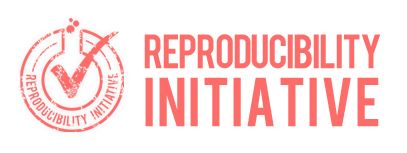PLOS ONE Launches Reproducibility Initiative
PLOS ONE is pleased to announce a collaboration with Science Exchange and figshare in a groundbreaking new project: The Reproducibility Initiative. The initiative aims to help scientists validate their research findings by providing a mechanism for blind, independent replication by experts from Science Exchange’s network of more than 1,000 providers at core facilities and contract research organizations.
Reproducibility, or the lack thereof, is a known issue in the scientific community, but few have the time or resources to fully address it. The Reproducibility Initiative is intended to encourage authors to validate their work by facilitating collaboration with an unbiased expert, and offering a Certificate of Reproducibility upon completion. This project will benefit stakeholders from across the research spectrum, including research scientists, drug companies, publishers, funders, and patient groups, all of whom agree that independent confirmation of results improves science and speeds discovery.
When PLOS ONE launched in 2006, a key objective was to publish those findings that historically did not make it into print: the negative results, the replication studies, the reanalyses of existing datasets. Although everyone knew these studies had value, journals would rarely publish them because they were not seen to be sufficiently important. PLOS ONE sought to become a venue for exactly these types of studies. As it happened, however, the submissions were not hugely forthcoming, although we have published a few. (One paper, for example, replicated a previous MRI study but used a higher resolution to confirm the findings, while another failed to replicate a famous psychology study from the nineties.) The Reproducibility Initiative harks back to this original objective, and may even open the doors to more papers whose sole purpose is to correct the literature.
The initiative brings together a number of scientific innovations to create a completely new research space. Science Exchange enables experiments to be performed objectively, free of the pressure to produce positive results that affects most scientists; PLOS ONE provides a formal publication venue that will publish the results of replication studies, even though they are not ‘novel’; and figshare provides a means of sharing raw data quickly and efficiently.
The Reproducibility Initiative is initially accepting 40-50 studies for validation. Scientists can submit their studies here. They will be selected on the basis of potential clinical impact and the scope of the experiments required. The organizers of the project hope that it will be the start of a more overarching system of validation by funders and patient groups, and that’s a sentiment we at PLOS ONE would certainly be happy to see replicated.

